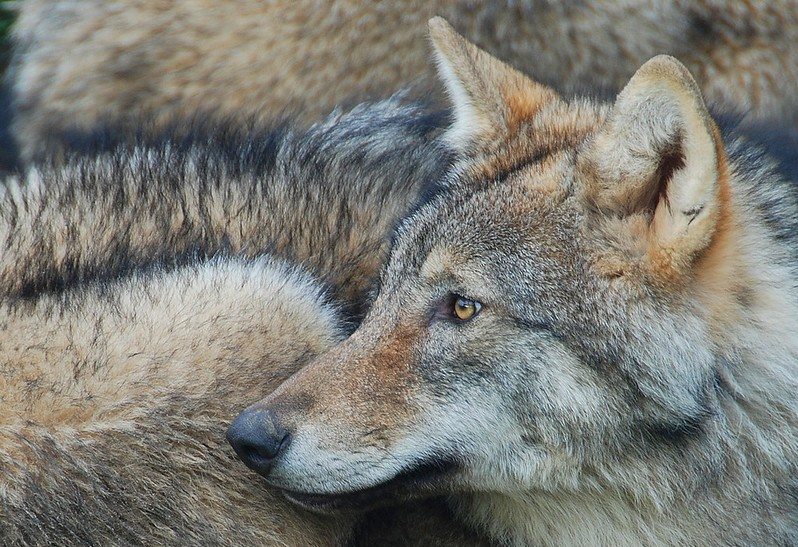Five years after wolf Naya was spotted in Limburg, an estimated 24 wolves already live in Belgium, and a new pack is now on its way, according to wolf researcher Joachim Mergeay of the Institute for Nature and Forest Research (INBO).
The exact number of wolves is of little relevance as it varies constantly, but the number of different packs (family groups) is more important. In one year, the number of wolves within such a pack can vary considerably, Mergeay told De Morgen.
"You then have an older pair forming the core of the pack and a number of cubs. Those young wolves then stay with the pack for one to two years, until they leave their parental territory or are chased away because they are considered competition for the parents," he said.
In summer, there is a peak in the number of wolves, because within a pack there are parents, yearlings and new cubs at the same time. "Within the Limburg pack in the municipality of Hechtel-Eksel, for example, the number of wolves went from four to 13 because the parents had a litter."
Related News
- Noëlla the Wolf gave birth to nine cubs this year
- Wolf cub killed in road accident in Flanders
- Flanders to allow shooting of 'problematic' wolves with paintball guns
That significantly increased the number of wolves, but it is likely that only six or so will remain after this spring. In the second pack, on the High Fens, there are reportedly still nine wolves, but the exact number is never sure.
Additionally, a new wolf pair has now been spotted near Bütgenbach, close to the German border, which could be the beginning of a possible third pack in Belgium. "It concerns a female born two years ago in the High Fens pack who was joined by a male stray, perhaps from Germany. Together they have established a new territory."
Reproduction normally starts around this time of year, which means that by mid-May there will likely be a new litter. "It is not uncommon for new packs to form. Normally, a parent pair defends its territory until they die. After that, the territory is usually taken over by one of the young, but sometimes by a wolf from another territory."

